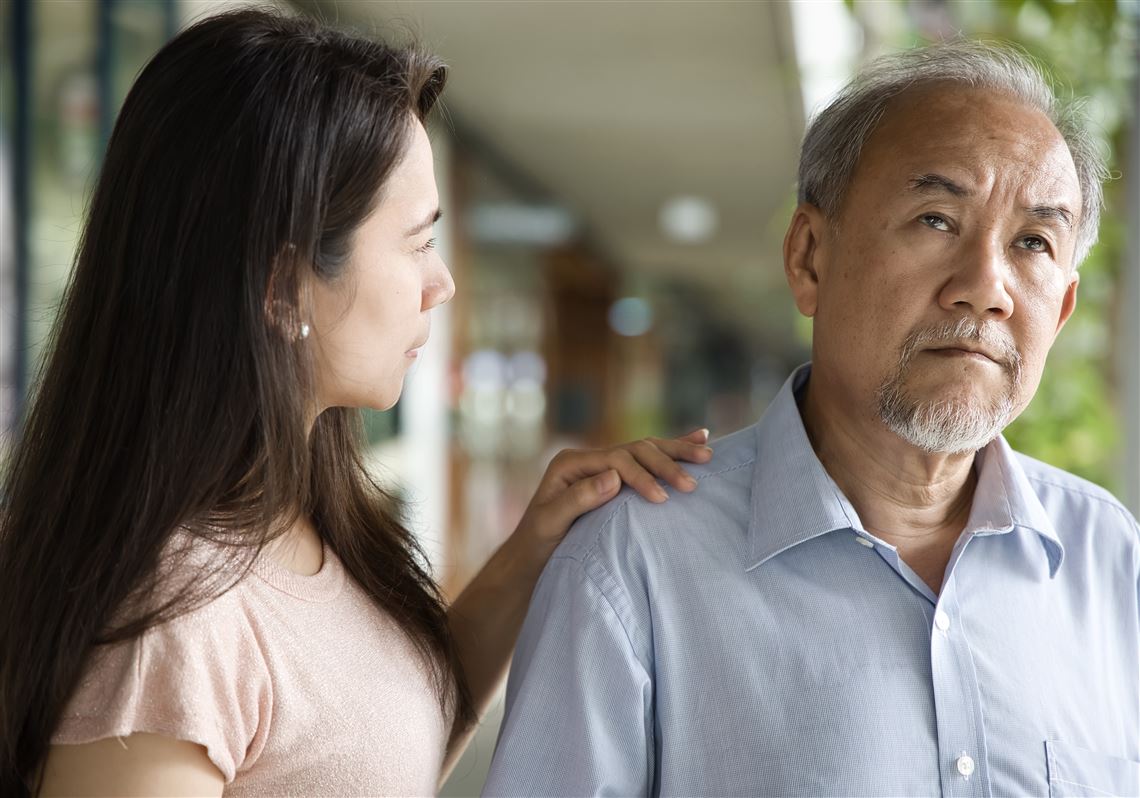Holiday get-togethers offer ample opportunities to create cherished moments with loved ones, but they can also reveal subtle clues about changes in older relatives’ mental and physical health.
While sharing meals and traditions with seniors, it’s worth paying attention to more than just their recollections from the past, as small signs of cognitive decline may surface in the present.
Holiday gatherings present a unique chance for family members to check in on their aging friends and relatives, said C.J. Girod, president of Seniors Helping Seniors of Southwestern Pa.
“It’s a good opportunity to recognize changes. If you're around someone a lot, you might not recognize subtle changes that are happening as much as someone who hasn’t seen mom or dad for a couple months,” Mr. Girod said.
Alzheimer's disease afflicts an estimated 6.7 million Americans, and that number is only growing, according to the National Institutes of Health. This number could grow to 13.8 million by 2060, barring the development of medical breakthroughs to prevent, slow or cure the disease. Alzheimer's remains the fifth-leading cause of death among Americans aged 65 and older.
The Alzheimer's Association estimates that 11.9% of Allegheny County residents age 65 and older have Alzheimer's disease, according to 2023 data. That compares to 11.5% statewide, with Allegheny ranking fourth highest of Pa.’s 67 counties, with only Philadelphia (15%), Delaware (12.3%) and Montour (12.2%) with higher rates. Locally, it means about 28,500 people have Alzheimer's in Allegheny County.
Talk it out
Absence may make the heart grow fonder, but it also sharpens the eye.
These infrequent reunions can reveal changes in our elderly loved ones — if you know how to look for the signs, said Theresa Lalak, a community liaison and certified dementia practitioner at Seniors Helping Seniors. The Mt. Lebanon-based licensed home care agency pairs elderly clients who need household and personal care assistance with a staff of active seniors who not only can offer help but also empathize and share a “golden years” point of view.
Sometimes, if you’re just reminiscing about the past, the conversation may stay light enough so as not to reveal any potential warning signs of decline. Instead, delve deeper and “ask questions to make sure that their cognitive abilities are the same,” Ms. Lalak said.
”For instance, are they managing finances OK, or are they managing their household OK? And then do that extra step of double-checking if you can. The best example is with food: If you’re in their home, look to see that they have food in their cabinets, there’s not expired food, that their dishes are clean in the cabinets and things are in order.”
If something seems amiss — especially concerning food, hygiene and medications — then warning bells should start ringing in your head.
Ask yourself, Ms. Lalak advised, questions including: “Are they more confused? What is their personal hygiene? Do they look like they have clean clothes on? Do they smell good? They’re freshly showered? If you’re in their home, is their home the same way it used to be? Is it just as decluttered and organized? Is there spoiled food in the refrigerator?” The goal, she said, is to home in on any changes.
Following the 10 early signs and symptoms of Alzheimer's and Dementia guidelines from the Alzheimer's Association can help you decide if it’s time to step in.
“Assess the situation. So have your eyes and ears working, and if there’s other family members there as well, discussing with them if they have noticed anything and take action before there's an emergency situation or crisis that arises,” Mr. Girod said. Oftentimes, he noted, clients come to Seniors Helping Seniors “already in crisis mode, and need assistance immediately.”
Frequently, family members are in a situation where they need to take immediate action — but they’ve never had a sit-down conversation with their elderly relatives to discuss what kind of options they are comfortable with or desire, Mr. Girod said.
Ms. Lalak agreed: “That’s a difficult conversion, but you do need to initiate it so that, as the person needs more assistance, you will know how best to help them and what they would like. Don’t wait until the person is very sick or there’s a crisis.” Not getting such information ahead of time, she said, means “you’re not prepared at an emotional time.”
Keep in mind that initiating these types of conversations can be hard on both sides, and embarrassment, frustration and other emotions can arise.
“If you notice that, for example, someone has a change in hygiene, instead of saying, ‘Hey grandma, when is the last time you showered?’ You should come from a place of love and know that, over time, people are going to need some help.” A better approach would be to offer help and come “from a place of love. Ms. Lalak suggested something along the lines of, “Grandma, can I help you shower, “can I help you with your laundry” or “how can I get help to you in the home?”
Don’t assume the worst
If you are noticing significant changes in behavior, keep in mind that there are many reasons it could be happening.
“It is important to just not say, “Oh, the person has Alzheimer's or dementia” if they’re forgetful or if things are not going well. There are many things that can cause some changes in your cognitive abilities: If the medications aren't being taken correctly, if there’s a reaction, if there’s a new disease, also if a person isn’t eating properly and they have very poor nutrition or if they aren’t sleeping well,” Ms. Lalak said. “All of those things can cause some cognitive impairment that could be temporary and not necessarily the permanence of Alzheimer's or dementia.”
One of the simplest ways to help a relative is by organizing their medications into a pillbox or into prepackaged pharmacy packs, Mr. Girod said. This organization not only helps to remind the senior to take their medication at the appropriate times, but it’s also a great clue for caregivers to know if there have been missed doses.
“It’s easy to see if they’ve missed a day,” he said.
Additionally, helping seniors to keep an updated list of all their medications can be an essential part of a successful health care plan. They should be taking that list to every regular checkup and specialist appointment and sharing it with all of their doctors. When a patient has multiple specialists, there’s no guarantee that the health care team is sharing medication information.
Recognizing these early indicators during holiday gatherings can be the first step toward ensuring your loved ones receive the care they need.
There are a variety of services available to area seniors, from transportation and community centers to nursing home alternatives and caregiver support. To find services in their area, search for “Agency on Aging” within their county of residence.
First Published: December 25, 2024, 5:00 a.m.
Updated: December 25, 2024, 10:09 p.m.
Roberta Burkhart is a Post-Gazette health and wellness reporter. A Penn State graduate, she previously covered breaking news, lifestyles and arts & entertainment in Pittsburgh, Williamsport, and Morristown, N.J.
rburkhart@post-gazette.com
@njbertie


